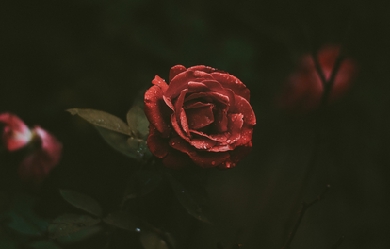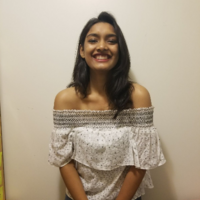
Info


Roderick Watson Kerr was born on January 1st 1895 at Old Monklands in Lanarkshire. His father (also called Roderick) was a master watchmaker. The family moved to Dalkeith shortly after his birth, and then to Edinburgh, living first in Candlemaker Row and then, after the death of Kerr senior, to Salisbury Terrace. Kerr was educated at Boroughmuir and Heriot's schools and then attended Broughton Junior Student Centre for several years, where, jointly with John Gould, he edited the Broughton Magazine from 1910-1911. His predecessor in the role of editor had been Hugh MacDiarmid, who, like Kerr, had been under the guidance of George Ogilvie, the teacher who was to prove a catalyst for literary development. While continuing his education during the day, he had joined The Scotsman newspaper as an apprentice, and worked there in the evenings. After Broughton, Kerr enrolled for teacher training at the Edinburgh Professional Training College (which became Moray House) and there too, he edited the college magazine. Kerr enlisted in the army shortly after the outbreak of war. He was commissioned as a 2nd Lieutenant in the Machine Gun Corps, and from there volunteered to work with the Army’s new weapon, the tank, joining the 2nd Royal Tank Corps after it was founded in 1916. He was awarded the Military Cross for his courage in commanding his tank in action in September 1918, despite being himself badly wounded. After a year in hospital, he was invalided out of the army in October 1919. After the war, Kerr attended classes at the University of Edinburgh, from 1921 to 1923, leaving to start work as a junior sub-editor at The Scotsman. While at university, Kerr formed a friendship with George Malcolm Thomson; between them, they planned the foundation of a new publishing house to accommodate and promote a new Scottish literary culture. The Porpoise Press started up in 1922. Its first production, launching the first series of contemporary writing in pamphlet form, was a collection of poems by F.V. Branford. The literary quality of the broadsheets was patchy, the editors finding it harder to get first-class writing to publish than they had anticipated. It wasn’t until Kerr’s own issue, No. 10 in 1924, that they came close to the satirical poetry designed to ‘rile the citizenry’ they had originally hoped for. But the stresses of running a small press took their toll, and both men, no longer students, had livings to make. Thomson moved to London in 1925; Kerr took a post as leader-writer on the Liverpool Daily Post & Echo, and left Edinburgh in 1926, but not before acknowledging the ‘spirit of joyous adventure’ which had filled the three years of their work (in a note appended to Thomson’s An Epistle to Roderick Watson Kerr (2nd series, No. 6). The Porpoise Press transferred to the guardianship of Lewis Spence. Kerr married Joan Macpherson from Kingussie in June 1927; they settled in Liverpool and enjoyed family life until 1939, when Mrs Kerr and the children were evacuated back to her parents’ farm in Kingussie, only returning in 1943 when the danger of bombing in Liverpool was over. Kerr’s job as sub-editor and leader writer with the Daily Post & Echo lasted until his retirement in 1957 – retirement taken early because of illness; he died in 1960. In an open reference written for Kerr in April 1914, George Ogilvie praised the ‘singular freshness and even originality of expression’ of his writing. Kerr kept a notebook during his active service in the war, with poems drafted in it; they were collected in War Daubs, published by John Lane in 1919. The publisher advertised the book as being the work of one who strips away the false glory of war and makes us look at it in all its nakedness. The Times Literary Supplement commented ‘The trench scenes are powerfully-etched impressions – vivid, intense, sincere', and a reviewer in the Sunday Evening Telegram said: 'Mr. Watson Kerr sees with the eyes of the man who has the brains to understand what it all means.' Hugh MacDiarmid included several of the war poems in the first issue of his anthology Northern Numbers (1920), and hoped for more, but in fact Kerr published very little poetry after the war. His own Porpoise Press pamphlets were satirical pieces; the first, Annus Mirabilis, or the Ascension o Jimmie Broon (1924), Alistair McCleery calls ‘clever humour aimed at obvious Aunt Sallies’. Kerr’s surviving son describes his father sitting daily in the park in the hours before his evening stint at the newspaper in Liverpool, tinkering with another long poem, again of social and political satire, but Kerr’s only other major literary publication was Style of Me: letters of Eula from the U.S.A., in 1945. Hugh MacDiarmid, in The National Outlook in 1921, wrote that Kerr’s war poetry was ‘the best produced by any Scottish soldier’, and it is for the war poems and his part in the founding of The Porpoise Press that Roderick Watson Kerr will be remembered. References http://www.scottishpoetrylibrary.org.uk/poetry/poets/roderick-watson-kerr
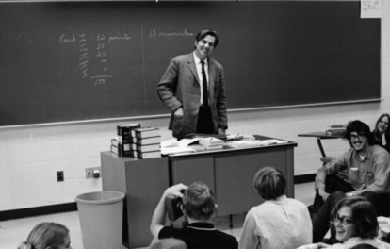
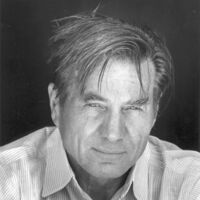
Galway Kinnell (February 1, 1927 – October 28, 2014) was an American poet. For his 1982 Selected Poems he won the Pulitzer Prize for Poetry and split the National Book Award for Poetry with Charles Wright. From 1989 to 1993 he was poet laureate for the state of Vermont. An admitted follower of Walt Whitman, Kinnell rejects the idea of seeking fulfillment by escaping into the imaginary world. His best-loved and most anthologized poems are "St. Francis and the Sow" and "After Making Love We Hear Footsteps". Born in Providence, Rhode Island, Kinnell said that as a youth he was turned on to poetry by Edgar Allan Poe and Emily Dickinson, drawn to both the musical appeal of their poetry and the idea that they led solitary lives. The allure of the language spoke to what he describes as the homogeneous feel of his hometown, Pawtucket, Rhode Island. He has also described himself as an introvert during his childhood. Kinnell studied at Princeton University, graduating in 1948 alongside friend and fellow poet W.S. Merwin. He received his master of arts degree from the University of Rochester. He traveled extensively in Europe and the Middle East, and went to Paris on a Fulbright Fellowship. During the 1960s, the Civil Rights Movement in the United States caught his attention. Upon returning to the US, he joined CORE (Congress of Racial Equality) and worked on voter registration and workplace integration in Hammond, Louisiana. This effort got him arrested. In 1968, he signed the “Writers and Editors War Tax Protest” pledge, vowing to refuse tax payments in protest against the Vietnam War. Kinnell draws upon both his involvement with the civil rights movement and his experiences protesting against the Vietnam War in his book-long poem The Book of Nightmares. From 1989 to 1993 he was poet laureate for the state of Vermont. Kinnell was the Erich Maria Remarque Professor of Creative Writing at New York University and a Chancellor of the American Academy of Poets. As of 2011 he was retired and resided at his home in Vermont until his death in October of 2014 from leukemia. Work While much of Kinnell's work seems to deal with social issues, it is by no means confined to one subject. Some critics have pointed to the spiritual dimensions of his poetry, as well as the nature imagery present throughout his work. “The Fundamental Project of Technology” deals with all three of those elements, creating an eerie, chant-like and surreal exploration of the horrors atomic weapons inflict on humanity and nature. Sometimes Kinnell utilizes simple and brutal images (“Lieutenant! / This corpse will not stop burning!” from “The Dead Shall be Raised Incorruptible”) to address his anger at the destructiveness of humanity, informed by Kinnell’s activism and love of nature. There’s also a certain sadness in all of the horror—“Nobody would write poetry if the world seemed perfect.” There’s also optimism and beauty in his quiet, ponderous language, especially in the large role animals and children have in his later work (“Other animals are angels. Human babies are angels”), evident in poems such as “Daybreak” and “After Making Love We Hear Footsteps”. In addition to his works of poetry and his translations, Kinnell published one novel (Black Light, 1966) and one children's book (How the Alligator Missed Breakfast, 1982). Kinnell wrote two elegies for his close friend, the poet James Wright, upon the latter's death in 1980. They appear in From the Other World: Poems in Memory of James Wright. References Wikipedia – http://en.wikipedia.org/wiki/Galway_Kinnell

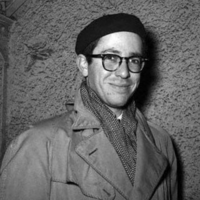
Kenneth Koch (27 February 1925– 6 July 2002) was an American poet, playwright, and professor, active from the 1950s until his death at age 77. He was a prominent poet of the New York School of poetry, a loose group of poets including Frank O’Hara and John Ashbery that eschewed contemporary introspective poetry in favor of an exuberant, cosmopolitan style that drew major inspiration from travel, painting, and music. Life Koch (pronounced coke) was born Jay Kenneth Koch in Cincinnati, Ohio. He began writing poetry at an early age, discovering the work of Shelley and Keats in his teenage years. At the age of 18, he served in WWII as a U.S. Army infantryman in the Philippines. After his service, he attended Harvard University, where he met future New York School poet John Ashbery. After graduating from Harvard in 1948, and moving to New York City, Koch studied for and received his Ph.D. from Columbia University. In 1951 he met his first wife, Janice Elwood, at UC Berkeley; they married in 1954 and lived in France and Italy for over a year. Their daughter, Katherine, was born in Rome in 1955. In 1959 he joined the faculty in the Department of English and Comparative Literature at Columbia, and he taught classes at Columbia for over forty years. His first wife died in 1981; Koch married his second wife, Karen Culler, in 1994. He was inducted into the American Academy of Arts and Letters in 1996. Koch died from a year-long battle with leukemia in 2002. Career While a student at Harvard, Koch won the prestigious Glascock Prize in 1948. In 1962, Koch was writer in residence at the New York City Writer’s Conference at Wagner College. The 1960s saw his first published books of poetry, but his poetry did not garner wider popular acclaim until the 1970s with his book The Art of Love: Poems (1975). He continued writing poetry and releasing books of poetry up until his death. Koch won the Bollingen Prize for One Train (1994) and On The Great Atlantic Rainway: Selected Poems 1950-1988 (1994), followed closely by the Phi Beta Kappa Poetry Award winner New Addresses (2000). In 1970, Koch released a pioneering book in poetry education, Wishes, Lies and Dreams: Teaching Children To Write Poetry. Over the next 30 years, he followed this book with other books and anthologies on poetry education tailored to teaching poetry appreciation and composition to children, adults, and the elderly. Koch wrote hundreds of avant-garde plays over the course of his 50-year career, highlighted by drama collections like 1000 Avant-Garde Plays (1988), which only contains 116 plays, many of them only one scene or a few minutes in length. His prose work is highlighted by The Red Robins (1975), a sprawling novel about a group of fighter pilots flying for personal freedom under the leadership of Santa Claus. He also published a book of short stories, Hotel Lambosa (1988), loosely based on and inspired by his world travels. He also produced at least one libretto, and several of his poems have been set to music by composers. Koch taught poetry at Columbia University, where his classes were popular. His wild humor and intense teaching style, often punctuated by unusual physicality (standing on a table to shout lines by Walt Whitman) and outbursts of vocal performance often drawn from Italian opera, drew non-English majors and alumni. Some of the spirit of these lectures is contained in his final book on poetry education, Making Your Own Days (1998). His students included poets Ron Padgett, David Shapiro, Frank Lima, Alan Feldman, David Lehman, Jordan Davis, Jessy Randall, David Baratier, Loren Goodman and Carson Cistulli. His poems were translated into German by the poet Nicolas Born in 1973 for the renowned “red-frame-series” of the Rowohlt Verlag. Koch had a brush with the anarchist affinity group Up Against the Wall Motherfuckers in early January 1968. During a poetry reading at St. Mark’s Church, a member of the group walked in and pointed a handgun at the podium, shouting “Koch!” before firing one blank round. The poet regained his composure and said to the “shooter,” “Grow up.” Poetry Koch asked in his poem Fresh Air (1956) why poets were writing about dull subjects with dull forms. Modern poetry was solemn, boring, and uneventful. Koch described poems “Written by the men with their eyes on the myth/ And the missus and the midterms...” He attacked the idea that poetry should be in any way stale. Koch wrote of how: The Waste Land gave the time’s most accurate data, It seemed, and Eliot was the Great Dictator Of literature. One hardly dared to wink Or fool around in any way in poems, And critics poured out awful jereboams To irony, ambiguity, and tension— And other things I do not wish to mention. (Excerpt from ‘'Seasons on Earth’,’ 1987) Though not against T. S. Eliot, Koch opposed the idea that in order to write poetry one had to be depressed or think that the world is a terrible place. His ideas were developed with close friends Frank O’Hara and John Ashbery, along with painters Jane Freilicher and Larry Rivers, among others. He once remarked that “Maybe you can almost characterize the poetry of the New York School as having as one of its main subjects the fullness and richness of life and the richness of possibility and excitement and happiness.” In his poem The Art of Poetry (1975) Koch offered guidelines to writing good poetry. Among his 10 suggestions are “1) Is it astonishing?” and “10) Would I be happy to go to Heaven with this pinned on to my angelic jacket as an entrance show? Oh would I?” Koch once remarked that “Children have a natural talent for writing poetry and anyone who teaches them should know that.” In his poems: He mixed word usage with various levels of imagery; He set two contrasting tones next to each other, simplicity and silliness at the same time; He spoke to everything, animate and inanimate objects; He used parody of other poets to express his own views, both serious and comic. Koch was labeled by some as just a comedic poet. He acknowledged this in an interview and offered his comments: He gives a picture of this in “To Kidding Around,” where the joys of being a joker are proclaimed: To be rid of troubles Of one person by turning into Someone else, moving and jolting As if nothing mattered but today In fact nothing But this precise moment... (Excerpt from To Kidding Around, 2000) Theater Koch collaborated with the composer Ned Rorem on an opera, Bertha, which received its premier in 1973. His short play, George Washington Crossing the Delaware, was produced in 1962. Numerous others of his plays have been produced. Selected works * Poems (1953) * Ko: or, A Season on Earth (1959) * Permanently (1961) * Thank You and Other Poems (1962) * Bertha, & other plays (1966) * Poems from 1952 and 1953 (1968) * The Pleasures of Peace and Other Poems (1969) * Sleeping with Women (1969) * When the Sun Tries to Go On (1969) * The Art of Love (1975) * The Duplications (1977) * The Burning Mystery of Anna in 1951 (1979) * From the Air (1979) * Days and Nights (1982) * On the Edge (1986) * Seasons on Earth (1987) * On the Great Atlantic Rainway: Selected Poems 1950–1988 (1994) * One Train (1994) * Straits (1998) * New Addresses (2000) * A Possible World (2002) References Wikipedia—https://en.wikipedia.org/wiki/Kenneth_Koch

I welcome you to my place where you'll find my inter most feelings expressed through my poetry. And through my writings I invite you to enjoy and discover a little more about my life. I started writing when I was in my early teens, without having previous knowledge of life's challenges. I found out very early that if one really wants to progress, you will discover answers for yourself. To me my style of writing is unique, mainly because it comes from deep within my heart. I consider my words a mixture of emotions and thoughts of my spirit and life, written in the form of poetry. Through this web site I hope to share with you a little of the pleasures I enjoy so much. And through my poetry I hope to capture a bit of your interest. When I write I try to portrait my inspirations and my feelings and through my poetry I find answers. If I'm really lucky my poetry finds it's way to paper. For this reason I invite you to share with me a walk through my words.


Stanley Jasspon Kunitz (July 29, 1905 – May 14, 2006) was an American poet. He was appointed Poet Laureate Consultant in Poetry to the Library of Congress twice, first in 1974 and then again in 2000. Biography Kunitz was born in Worcester, Massachusetts, the youngest of three children, to Yetta Helen (née Jasspon) and Solomon Z. Kunitz, both of Jewish Russian Lithuanian descent.His father, a dressmaker of Russian Jewish heritage, committed suicide in a public park six weeks before Stanley was born. After going bankrupt, he went to Elm Park in Worcester, and drank carbolic acid. His mother removed every trace of Kunitz’s father from the household. The death of his father would be a powerful influence of his life.Kunitz and his two older sisters, Sarah and Sophia, were raised by his mother, who had made her way from Yashwen, Kovno, Lithuania by herself in 1890, and opened a dry goods store. Yetta remarried to Mark Dine in 1912. Yetta and Mark filed for bankruptcy in 1912 and then were indicted by the U.S. District Court for concealing assets. They pleaded guilty and turned over USD$10,500 to the trustees. Mark Dine died when Kunitz was fourteen, when, while hanging curtains, he suffered a heart attack.At fifteen, Kunitz moved out of the house and became a butcher’s assistant. Later he got a job as a cub reporter on The Worcester Telegram, where he would continue working during his summer vacations from college.Kunitz graduated summa cum laude in 1926 from Harvard College with an English major and a philosophy minor, and then earned a master’s degree in English from Harvard the following year. He wanted to continue his studies for a doctorate degree, but was told by the university that the Anglo-Saxon students would not like to be taught by a Jew.After Harvard, he worked as a reporter for The Worcester Telegram, and as editor for the H. W. Wilson Company in New York City. He then founded and edited Wilson Library Bulletin and started the Author Biographical Studies. Kunitz married Helen Pearce in 1930; they divorced in 1937. In 1935 he moved to New Hope, Pennsylvania and befriended Theodore Roethke. He married Eleanor Evans in 1939; they had a daughter Gretchen in 1950. Kunitz divorced Eleanor in 1958.At Wilson Company, Kunitz served as co-editor for Twentieth Century Authors, among other reference works. In 1931, as Dilly Tante, he edited Living Authors, a Book of Biographies. His poems began to appear in Poetry, Commonweal, The New Republic, The Nation, and The Dial. During World War II, he was drafted into the Army in 1943 as a conscientious objector, and after undergoing basic training three times, served as a noncombatant at Gravely Point, Washington in the Air Transport Command in charge of information and education. He refused a commission and was discharged with the rank of staff sergeant.After the war, he began a peripatetic teaching career at Bennington College (1946–1949; taking over from his friend Roethke). He subsequently taught at the State University of New York at Potsdam (then the New York State Teachers College at Potsdam) as a full professor (1949-1950; summer sessions through 1954), the New School for Social Research (lecturer; 1950-1957), the University of Washington (visiting professor; 1955-1956), Queens College (visiting professor; 1956-1957), Brandeis University (poet-in-residence; 1958-1959) and Columbia University (lecturer in the School of General Studies; 1963-1966) before spending 18 years as an adjunct professor of writing at Columbia’s School of the Arts (1967-1985). Throughout this period, he also held visiting appointments at Yale University (1970), Rutgers University–Camden (1974), Princeton University (1978) and Vassar College (1981).After his divorce from Eleanor, he married the painter and poet Elise Asher in 1958. His marriage to Asher led to friendships with artists like Philip Guston and Mark Rothko.Kunitz’s poetry won wide praise for its profundity and quality. He was the New York State Poet Laureate from 1987 to 1989. He continued to write and publish until his centenary year, as late as 2005. Many consider that his poetry’s symbolism is influenced significantly by the work of Carl Jung. Kunitz influenced many 20th-century poets, including James Wright, Mark Doty, Louise Glück, Joan Hutton Landis, and Carolyn Kizer. For most of his life, Kunitz divided his time between New York City and Provincetown, Massachusetts. He enjoyed gardening and maintained one of the most impressive seaside gardens in Provincetown. There he also founded Fine Arts Work Center, where he was a mainstay of the literary community, as he was of Poets House in Manhattan. He was awarded the Peace Abbey Courage of Conscience award in Sherborn, Massachusetts in October 1998 for his contribution to the liberation of the human spirit through his poetry.He died in 2006 at his home in Manhattan. He had previously come close to death, and reflected on the experience in his last book, a collection of essays, The Wild Braid: A Poet Reflects on a Century in the Garden. Poetry Kunitz’s first collection of poems, Intellectual Things, was published in 1930. His second volume of poems, Passport to the War, was published fourteen years later; the book went largely unnoticed, although it featured some of Kunitz’s best-known poems, and soon fell out of print. Kunitz’s confidence was not in the best of shape when, in 1959, he had trouble finding a publisher for his third book, Selected Poems: 1928-1958. Despite this unflattering experience, the book, eventually published by Little Brown, received the Pulitzer Prize for Poetry. His next volume of poems would not appear until 1971, but Kunitz remained busy through the 1960s editing reference books and translating Russian poets. When twelve years later The Testing Tree appeared, Kunitz’s style was radically transformed from the highly intellectual and philosophical musings of his earlier work to more deeply personal yet disciplined narratives; moreover, his lines shifted from iambic pentameter to a freer prosody based on instinct and breath—usually resulting in shorter stressed lines of three or four beats. Throughout the 70s and 80s, he became one of the most treasured and distinctive voices in American poetry. His collection Passing Through: The Later Poems won the National Book Award for Poetry in 1995. Kunitz received many other honors, including a National Medal of Arts, the Bollingen Prize for a lifetime achievement in poetry, the Robert Frost Medal, and Harvard’s Centennial Medal. He served two terms as Consultant on Poetry for the Library of Congress (the precursor title to Poet Laureate), one term as Poet Laureate of the United States, and one term as the State Poet of New York. He founded the Fine Arts Work Center in Provincetown, Massachusetts, and Poets House in New York City. Kunitz also acted as a judge for the Yale Series of Younger Poets Competition. Library Bill of Rights Kunitz served as editor of the Wilson Library Bulletin from 1928 to 1943. An outspoken critic of censorship, in his capacity as editor, he targeted his criticism at librarians who did not actively oppose it. He published an article in 1938 by Bernard Berelson entitled “The Myth of Library Impartiality”. This article led Forrest Spaulding and the Des Moines Public Library to draft the Library Bill of Rights, which was later adopted by the American Library Association and continues to serve as the cornerstone document on intellectual freedom in libraries. Awards and honors * 2006 L.L. Winship/PEN New England Award, The Wild Braid: A Poet Reflects on a Century in the Garden Bibliography * * Poetry * The Wild Braid: A Poet Reflects on a Century in the Garden (2005) * The Collected Poems of Stanley Kunitz (NY: W. W. Norton & Company, 2000) * Passing Through, The Later Poems, New and Selected (NY: W. W. Norton & Company, 1995)—winner of the National Book Award * Next-to-Last Things: New Poems and Essays (1985) * The Wellfleet Whale and Companion Poems * The Terrible Threshold * The Coat without a Seam * The Poems of Stanley Kunitz (1928–1978) (1978) * The Testing-Tree (1971) * Selected Poems, 1928-1958 (1958) * Passport to the War (1944) * Intellectual Things (1930)Other writing and interviews: * Conversations with Stanley Kunitz (Jackson, MS: University Press of Mississippi, Literary Conversations Series, 11/2013), Edited by Kent P. Ljungquist * A Kind of Order, A Kind of Folly: Essays and Conversations’ * Interviews and Encounters with Stanley Kunitz (Riverdale-on-Hudson, NY: The Sheep Meadow Press, 1995), Edited by Stanley MossAs editor, translator, or co-translator: * The Essential Blake * Orchard Lamps by Ivan Drach * Story under full sail by Andrei Voznesensky * Poems of John Keats * Poems of Akhmatova by Max Hayward References Wikipedia—https://en.wikipedia.org/wiki/Stanley_Kunitz
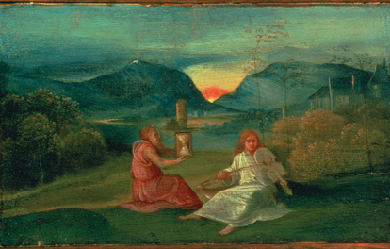
Good day. How you holding up?! I am 25 years old and living in a big city with bigger dreams. I have always found writing to be the most sophisticated way to express one's innermost turmoil. Currently, I'm pursuing a career in finance while being in the process of earning my CHARTERED ACCOUNTACY degree and bachelors in Law. As an introvert, I have always found solace and friends with words and books. I began writing when I was 12 years old and I have not stopped since. However, this will be the first time that anyone but myself will have access to my prose, poetry or any other writing material. Thank you. Love, Sharayu

I'm 21 I have been writing since I was in the 7th grade but I was too scared to share them with anyone, I'm married but going through a divorice and I have a 2 year old daugher who is the best blessing in my life and is my world. I love photography. I love the out doors. I want to major in Kids Psychology. I love Family Guy and American Dad or anything with Adam Sandler. I have a cat named Thrall lol from WoW, I love to read all the time. I see the beauty in everything no matter how ugly it may seem, beauty is in the eyes of the beholder.

My full name is Zachary Jon Davis. I was born in Celebration, Florida. I am currently going into cosmetology but, my goal is to open up my own haunted house! The world of horror and scaring people is where my heart sits and where my heart wants to be. I have never really been someone who shared their work, but I am feeling more open to the idea of letting my work be seen by others. Though skeptical about how other people will view it. Who cares, baring your hearts work is something that everyone should try at least once right? Haiku's are really fun to write, and they are usually what I am writing. Though I do have a lot of AA BB rhyme schemes in my older work. I'd love to get back into writing newer styles! If you have any interest in my work then just feel free to message me here, or find a way to contact me! Have a wonderful day! -Kniixx
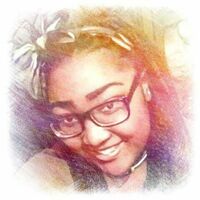
I'm young but my eyes have lied naked to the world for too long, but i see , I live, gain wisdom, I write, and most of all I learn to love. what you see depicts the difference between you and me but to find the difference we must share. If nothing else my words be my gift to you and your response be your gift to me. And might I add I'm willing to receive.

When the world seems to go unfair, I use my poetry as my only escape. When my pen hits the paper I'am in a whole different world. I write about whatever im feeling at the moment. All my poetry rhymes, and it all comes from something ive went through or am currently dealing with. PLEASE feel free to comment your thoughts.

Born and raised in the city of Sheffield, England, I am currently attending the University of Sheffield studying English Literature and Language. Due to my background and education I aim to write poetry that is both accessible and emotive, with a hint (or sometimes huge dollop) of ambiguity. I work as a part time a chef, and have no idea what I want to do with my life after University. Due to work and University I don't have as much free time as I would like to invest in my writing; but I do what I can, when I can! That's about all there is to say without boring my readers, so if you have any questions about my work or my life please don't hesitate to get in touch. ~RJKerr

I have always been captivated by the beauty of poetry; the elegance and clarity with which such pain and intensity can be translated. Identifying with a poem is different than relating to plain words, it connects you not only to someone's inner self but also to their creative ability. I started writing poetry in elementary school (I should probably burn those poems) and mostly wrote about nature, since as a kid I did not have many troubles. As I grew older, though, my poetry transformed into a channel for my painful experiences and trauma. At 17, my twin brother, Christopher, committed suicide. I found bleeding myself dry onto paper with the feelings and thoughts I could not comprehend inside my own mind helped me to sort through the shock, the pain, and the regret. Four years later, my father died in my arms from a heart attack. Again, I was faced with internal anguish, boiling under my skin and reverberating off the walls of my consciousness. Poetry has always been my outlet. I am not talented at drawing or really any other art form. Translating very dark, personal pain, into rhythmic, flowing stanzas allows me to open up in ways I cannot otherwise.

Everyone's entitled to their art; here is mine. Everyone has a lot to process in life and should be able to share the product that results from that construction of meaning. But here it is. Pieces I've written over time and I don't have to tell you explicitly how they all fit together. The whole story is there, but you don't have to understand it like I do. It's for both of us.

-... .. . -. ...- . -. .. -.. --- ... --..-- / ...- .. .- .--- . .-. --- ... / -.. . .-.. / - .. . -- .--. --- / -.-- / . .-.. / . ... .--. .- -.-. .. --- --..-- / .- / . ... - . / .-. .. -. -.-. ---. -. / -.. --- -. -.. . / .-.. --- ... / ... ..- . --.-- --- ... / . -. -.-. ..- . -. - .-. .- -. / ... ..- / .- -... .-. .- --.. --- --..-- / .- --.- ..- # / .-.. .- ... / .--. .- .-.. .- -... .-. .- ... / -.. .- -. --.. .- -. / . -. / ...- . .-. ... --- ... / -.-- / .--. .-. --- ... .- --..-- / -.. --- -. -.. . / -.-. .- -.. .- / .--. . -. ... .- -- .. . -. - --- / . -. / . .-.. / ...- .. . -. - --- / .-. . .--. --- ... .- .-.-.- / ... . .- -. / - --- -.. --- ... / -... .. . -. ...- . -. .. -.. --- ... --..-- / -.-. --- .-. .- --.. --- -. . ... / . -. / -... ..- ... -.-. .- --..-- / -.. . / .... .. ... - --- .-. .. .- ... --..-- / .-. . ... .--. ..- . ... - .- ... / -.-- / ..- -. / .--. --- -.-. --- / -.. . / .-.. ..- --.. --..-- / . -. / . ... - . / -- ..- -. -.. --- / -.. . / .-.. . - .-. .- ... / --.- ..- . / ... . / . -. - .-. . .-.. .- --.. .- -. --..-- / -.. --- -. -.. . / .-.. .- ... / .. -.. . .- ... / ..-. .-.. --- .-. . -.-. . -. / -.-- / . .-.. / -.-. --- -. --- -.-. .. -- .. . -. - --- / .- -... .-. .- --.. .- .-.-.- / -... .. . -. ...- . -. .. -.. --- ... --..-- / .- .-.. / . -. -.-. ..- . -. - .-. --- / -.. . / .. -- .- --. .. -. .- -.-. .. ---. -. --..-- / -.. --- -. -.. . / ... . / .- -... .-. . -. / .--. ..- . .-. - .- ... / .- / -.-. .- -.. .- / -.-. .-. . .- -.-. .. ---. -. --..-- / .-.. .- ... / -- . -. - . ... / -.-. ..- .-. .. --- ... .- ... / .- --.- ..- # / . -. -.-. --- -. - .-. .- .-. .--.- -. / ... ..- / .... --- --. .- .-. --..-- / . -. / . ... - . / .-. .. -. -.-. ---. -. / -.. . / .--. --- ... .. -... .. .-.. .. -.. .- -.. . ... / .- / . -..- .--. .-.. --- .-. .- .-. .-.-.- / --.- ..- . / . ... - . / . ... .--. .- -.-. .. --- / ... . .- / .-. . ..-. ..- --. .. --- --..-- / .. -. ... .--. .. .-. .- -.-. .. ---. -. / -.-- / -- .--.- ... --..-- / -.. --- -. -.. . / -.-. .- -.. .- / .- .-.. -- .- / . -. -.-. ..- . -. - .-. . / ... ..- / .--. .-. --- .--. .. --- / -.-. --- -- .--. .--.- ... --..-- / -... .. . -. ...- . -. .. -.. --- ... / .- / ..- -. / ...- .. .- .--- . / .--. --- .-. / .-.. .- / -- . -. - . / -.-- / . .-.. / .- .-.. -- .- --..-- / .- / . ... - . / .-. .. -. -.-. ---. -. / -.. --- -. -.. . / .-.. .- / .--. .- .-.. .- -... .-. .- / . ... / .-.. .- / -.-. .- .-.. -- .- .-.-.- / . -. / -.-. .- -.. .- / .-.. # -. . .- / - . .--- .. -.. .- --..-- / . -. / -.-. .- -.. .- / ...- . .-. ... --- / .-.. .- - . -. - . --..-- / . -. / -.-. .- -.. .- / .--. .-. . --. ..- -. - .- / -.-- / .-. . ... .--. ..- . ... - .- --..-- / . -. / -.-. .- -.. .- / -- . -. - . --..-- / . -. / . ... - . / .. -. - . .-. -.-. .- -- -... .. --- / -.. . / .. -.. . .- ... --..-- / . -. / . ... - .- / -.. .- -. --.. .- / ... .. -. / ..-. .. -. .- .-.. --..-- / -... .. . -. ...- . -. .. -.. --- ... --..-- / .- / ..- -. / -- ..- -. -.. --- / -.. --- -. -.. . / . .-.. / -.-. --- -. --- -.-. .. -- .. . -. - --- / . ... / - --- - .- .-.. .-.-.-

I know. In most of my poems I sound dark and moody and like I live in black skinny jeans and a hoodie. But no, I'm not as depressed as I sound. I am, in fact, a relatively optimistic person with a rather positive outlook on life. I love my God and He loves me, so that gets me through the tough times. In those tough times, though, I shut down. It's not healthy, but I tend to unintentionally, and usually unawaredly (is that a word? Meh. Sounds good.), internalize my feelings to the point of not believing they're even there. Sometimes, though, I wind up unable to sleep and staring at the ceiling because of the dark thoughts swarming through my head. Those nights, I write. Anytime I have a rough patch of emotions, I write it down, make it pretty and usually rhyming, and call it a day. These poems are the less personal (yeah. Less personal.) ones that I wanted to share. Thank you for visiting my page and God bless. K

Just another drug addled asshole who sees a little beyond the lines of normality (according to society). Just another person who has taken enough hallucinogenics to know what colors taste like. Just another man who prefers other men. Just another victim tired of other victims acting like victims. And, over all, just another person who values words more than most. I see a beauty so commonly unappreciated.

I'm a 19 year old college student. My smile is a lie and hides many unpleasant thoughts. Having dealt with depression in the past and currently struggling with self harm and what some might call an eating disorder, I live a different life than many. I have recently started writing poems with the hope of releasing my negative feelings. Feedback is appreciated. Hope you enjoy what I've written.
24 yo, Moscow Just a girl who tries to cure the uncurable :) diagnosed with the hardest mental disease existing at the age of 18 Hobbies: books, yoga and meditation, neuroscience, languages, arts Always opened to new friendly interactions, feel free to text me, I will be glad to make new friends here!


